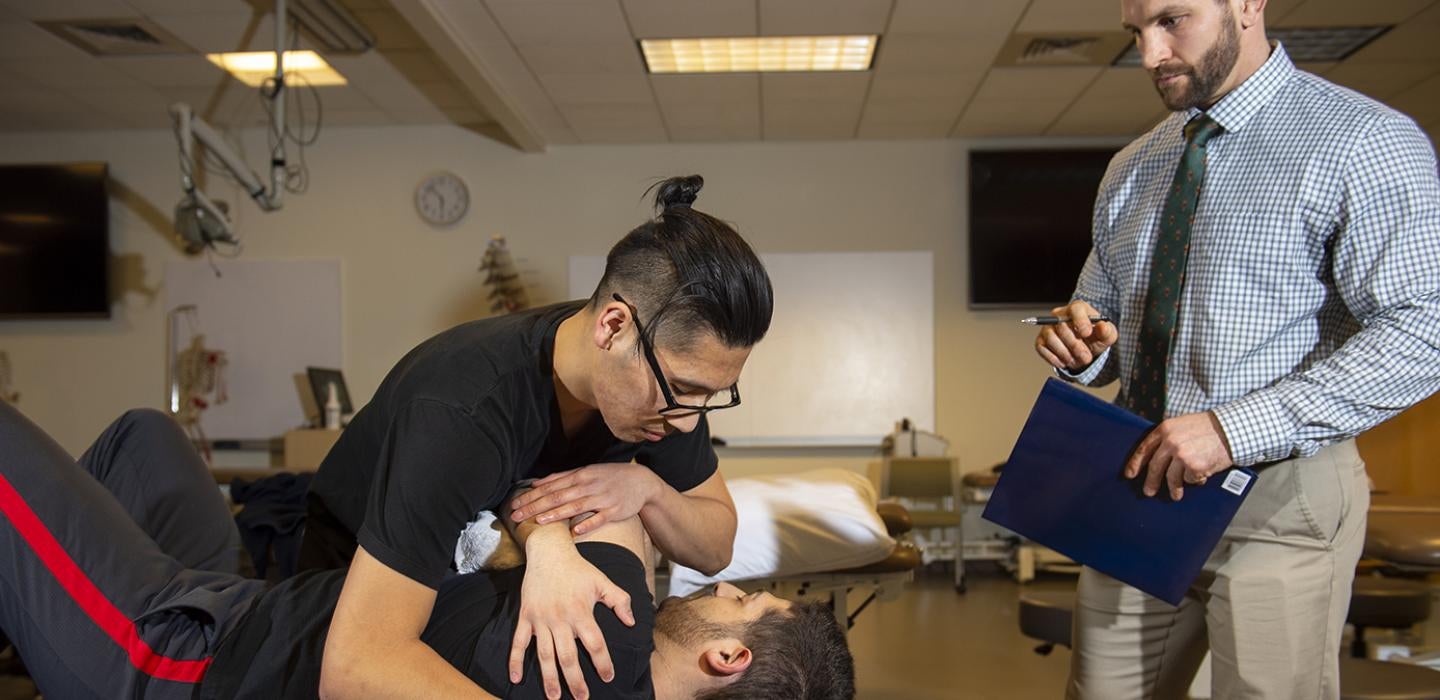
Subscribe to Pittwire Today
Get the most interesting and important stories from the University of Pittsburgh.The University of Pittsburgh School of Health and Rehabilitation Sciences (SHRS) is expanding access to its number one-ranked Doctor of Physical Therapy program and its Master of Science in physician assistant studies program by offering both in a hybrid online/in-person format.
Pitt is among the first higher education institutions to bring these degree options online, which will allow students from across the United States to study and train in their own communities and to benefit from a lower cost of attendance.
“While educational excellence has always been an integral part of our school's success, we are now finding innovative ways to make our programs more accessible and more affordable,” says Anthony Delitto, dean of SHRS.
These new programs are the third and fourth that the school has launched in collaboration with Noodle, an online learning network. Previously, SHRS worked with Noodle to develop its online Master of Science in health informatics and its Doctor of Clinical Science in occupational therapy programs.
“These two hybrid programs further demonstrate Pitt SHRS’ commitment to increasing access to its high-quality health care programs. Noodle and SHRS share the belief that online and hybrid learning is a powerful tool in bringing education to more people in more ways,” says Noodle CEO John Katzman. “This is exactly how innovative universities must educate the next generation of leaders.”
About the programs
The new Doctor of Physical Therapy (DPT) hybrid option is an expansion of SHRS’ long-standing residential program, currently ranked No. 1 by U.S. News & World Report.
“The DPT hybrid option will allow students from diverse backgrounds and geographic areas to take advantage of the education offered by Pitt’s top-ranked DPT program,” says Kim Nixon-Cave, director of the DPT hybrid offering. “One of the goals of developing the hybrid option is to offer DPT education to students who might be limited by financial costs, an inability to relocate or family commitments.”
Students will complete 42 weeks of full-time clinical experiences in or near their home communities, a requirement that, Cave notes, will encourage graduates from the program to stay in these areas and increase access to physical therapy services in regions that are typically underserved. Hybrid students also will be required to travel to the University of Pittsburgh each term for several immersive laboratory sessions.
Additionally, the length of the entire DPT program has been shortened to seven terms, or a little more than two years, providing students with further time and cost savings.
Students in the two-year Physician Assistant Studies (PAS) Hybrid Program will have opportunities for clinical placements within a network of more than 2,000 health care settings throughout the country. The PAS Hybrid Program will soon be applying for provisional accreditation from the ARC-PA, and it will only commence if accredited.
“We aim to provide access to our high-quality [physician assistant] training for students who want to continue to live in and support their local communities,” says David Beck, director of the PAS Hybrid Program and chair of the Department of Physician Assistant Studies. “Our program will provide clinical training near our students’ homes so their professional advancement can benefit their neighbors, especially those in need of health care, during their training and after graduation.”
Pitt’s physical therapy hybrid offering will make use of the same curriculum and plan of study as the residential DPT program. Hybrid students will participate in asynchronous and synchronous online learning activities and will come to Pittsburgh twice per term to learn and practice the hands-on and clinical decision-making skills required of physical therapists.
“Upon graduating, we expect hybrid students to achieve the same exceptional educational outcomes for which our program is known,” says James Irrgang, chair of the Department of Physical Therapy.
How to apply
Students may apply for the DPT program 2022 cohort beginning on June 15. Pitt will accept 30 students into the DPT hybrid format this fall and up to 90 hybrid students each fall thereafter, starting with the 2022 cohort.
The PAS Hybrid Program is currently accepting applications for the January 2023 term. One hundred students will be accepted into the initial cohort.


